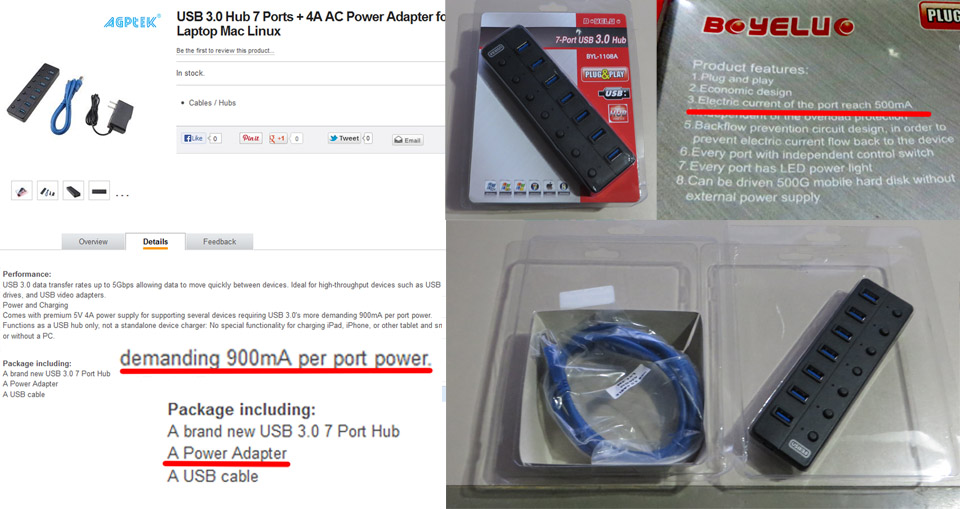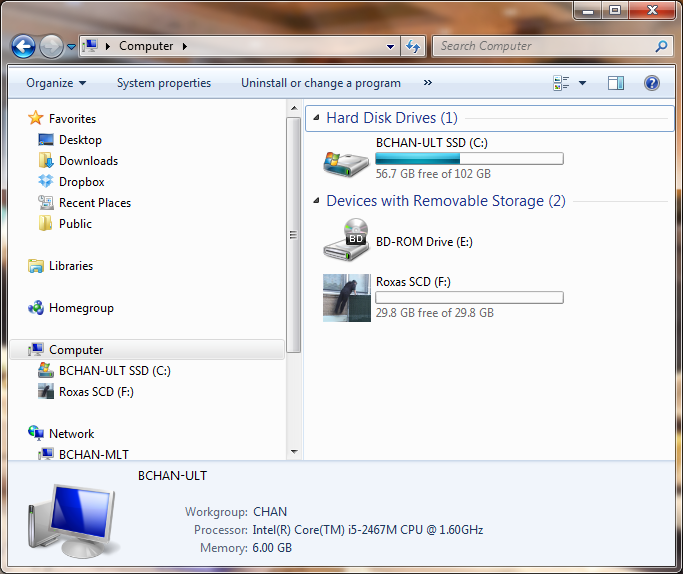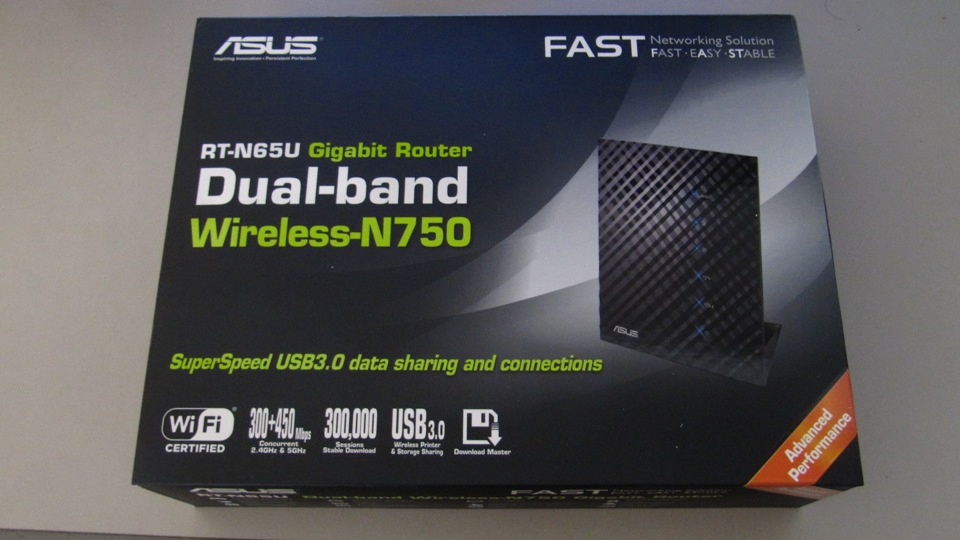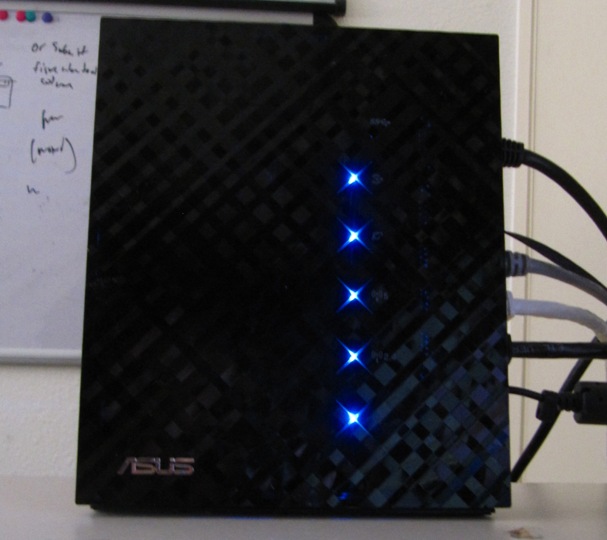
Or AGPtek, or whatever. Anything with this specific packaging. But there's more problems than with just that.
I normally don't review small products like this, but the potential problems of buying generic brand items for cheaper prices forces me to give a fair warning about these.
Overview
The manufacturer from Newegg reads AGPtek (and there are three different products in the market, though they are sold by different companies, and one of them is marked as First From Asia). But a few problems:
- AGPtek does not manufacture or sell USB Hubs
- Their support website does not show anything about them.
- There is no 'direct' manufacturing website on its product (nor does it have the company name on the product itself).
Those are just generic problems, and I didn't cover the product problems. They are:
- No AC Adapter present in the box (that means I have to find my own, which could take a while).
- Power for the hub is 500mA (it's on the back of the box, but the product overview doesn't tell you that, particularly since the product images do not show the back of the box. Nothing on the box says the adapter is present either.
- Recognized as two USB 2.0 Ports and two USB 3.0 ports in Device Manager upon plugin. Does that mean I can only get four ports worth of usb hubs? Don't know yet, but will test soon.
There is an upside, however, and that is the power for USB devices for the hub are controlled via buttons, which means that you don't have repeatedly plug and unplug something for whatever reason (usually due to delays in booting up Win7 when multiple external hard drives are plugged in).
Two options remain, either return it to test it out. Considering I can't return or exchange it as there's parts missing when it arrived and the hub's not defective, and there's really no reviews for this, there's only one option left. (I do not want to waste $30 on this one)
Results: The USB 3.0 hub was tested with a card reader and five hard drives attached to it. Without an (optional) power supply, only three drives and a card reader were operational, anything else was not recognized by Windows. The number of devices recognized could be less if those devices used up more power. However, all of the ports appear to have USB 3.0 like speeds.



